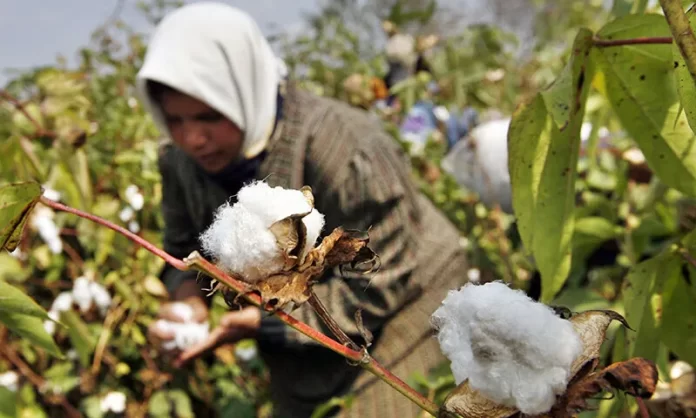Whiteflies are attacking Punjab’s cotton crop, which is proving to be a nightmare for growers and agricultural department officials who had previously anticipated a good harvest this year due in large part to favourable weather.
The severity of the whitefly infestation, which experts attribute to a sudden rise in temperatures across the cotton belt over the past few weeks, has sparked worries about a remarkable decline in per-acre crop yield, contrary to general expectations that the target for lint production may not be met this year as well.
Among the worst-hit are reportedly Bahawalpur, Rajanpur, and Dera Ghazi Khan. Additionally, cotton arrivals in markets and ginning facilities are said to have decreased by a record amount.
To assist, army helicopters and drones are used to spray pesticides.
Aware of the serious pest attack, interim Chief Minister Mohsin Naqvi sent Agriculture Secretary Iftikhar Sahoo and other top officials to the area in question. He also requested the use of army helicopters and drones to spray pesticides.
According to a press release from the CM’s office, the army’s high command has granted the request to use its helicopters and drones to spray the fields affected by pests.
The attack started a few weeks ago, according to Cotton Ginners Forum Chairman Ihsanul Haq, and it is affecting the plant’s growth because the leaves are turning black. He was concerned that the attack would not only have an impact on domestic cotton production overall but also on the quality of the crop, which might increase cotton imports and put an excessive strain on the country’s limited foreign exchange reserves.
Due to a lack of timely and accurate forecasts, Mr. Haq held the Meteorological Department accountable for weather-related damages the agriculture sector has been experiencing for many years.
According to him, meteorological departments all over the world have recently undergone significant improvements as a result of global warming in order to provide timely and accurate weather forecasts of the rapidly changing climate that can protect crops and the environment from the greatest possible negative effects.
He regrets that the department’s machinery in Pakistan was not upgraded and that it was instead reorganised to become the Ministry of Climate Change, which would have no beneficial impact on Pakistan’s agricultural sector.
A record production of 10 million cotton bales was anticipated this year as a result of the federal and provincial governments designating 2023–24 as the cotton year.
The Federal Committee on Agriculture set the goal for domestic cotton production for this year at 12.7 million bales, which seems improbable.






